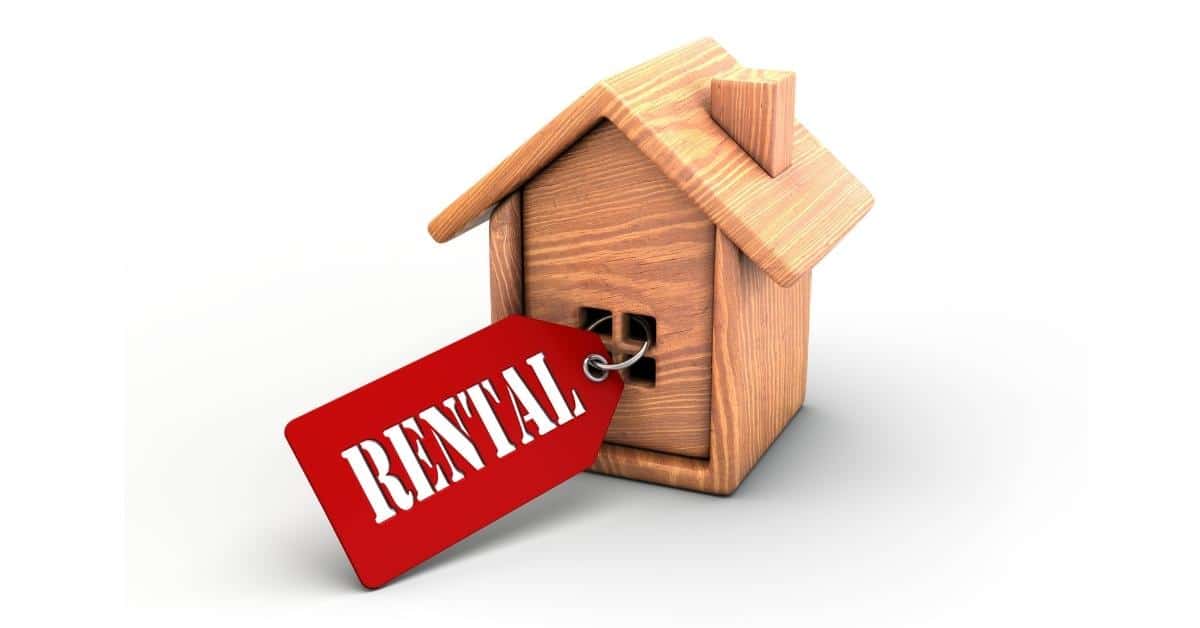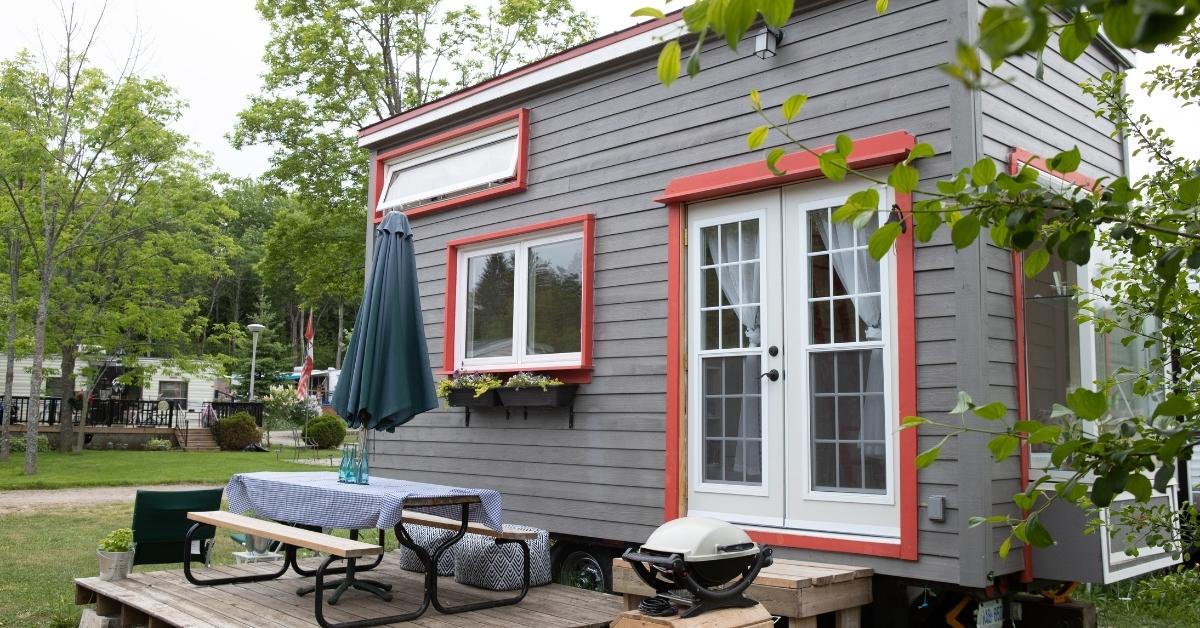New investors often wonder, 'REIT vs. rental property, which is better?' These two ways of investing in property are entirely different. However, both can bring significant returns if you invest at the right time and in the right assets.
There are pros and cons to both. So, we created a detailed REIT vs. rental property investment guide. It explains the ins and outs of both, buying tips, and essential things to think about before purchasing either investment type.
Real estate investment trusts (REITs) are groups that invest in real estate assets. These trusts can be publicly traded, or shares can be privately held. Investing in REITs is as simple as buying stocks if you want publicly traded assets.

You can go into your investment account and buy REIT stock anytime. However, that is not the only option for becoming a REIT investor.
You can also join a private real estate trust or form one with investors you know. However, when forming an investment trust, you must ensure that distributions, shares, and business processes are in place and that property acquisition, management, and disposal protocols exist.
If you do not want to go through the trouble of starting your own REIT and recruiting other investors, you can join a private REIT with fewer members. In private REITs, you have to buy shares in the company, and the organization may require a sizable upfront investment.
Investing in publicly traded REITs is often safer because the SEC governs them. That means they must follow the stringent laws governing investment firms.
REITs are one of the easiest and least expensive ways to start investing in real estate.
You can buy REITs for as little as it costs to buy a few shares. Share prices range from just a few dollars to a couple hundred, depending on the trust. Trusts that perform well generate higher stock prices because investors want the opportunity to profit from the trust.
However, you can invest in newer REITs with experienced managers while the stock prices are lower and have an opportunity to make a sizable return when other investors get on board.
Publicly traded REITs are easy to sell if you need cash. The ability to sell your REIT shares quickly is beneficial in a volatile market. When you buy physical assets, you may get stuck with them if the market crashes or there is a recession. You do not have the option of putting in a sale order.
REITs are extremely easy to acquire. You can buy REIT stocks from nearly any investment app or stock portfolio management company. You can also choose REIT investments through some 401k and ROTH IRA plans. Retirement planning companies often have packages you can select.
Others allow you to invest a specific portion of your account in different sectors. So, if you wanted your 401k assets invested in REITs, you should be able to do that.
Investing in REITs does not require a lot of effort on your part. You buy the shares, and you get paid if the fund does well. But, there is no residual work you need to do to continue receiving distributions.
When you buy REITs, you can invest small amounts in several trusts that own different portfolios. It takes investors years to build a diverse portfolio of investment properties.
Diversification provides investors security. If one or two deals go wrong, it does not significantly impact most trusts. It can be devastating when an individual loses money on a few investment deals.
Additionally, if one area of the stock market is performing poorly, other areas can help to offset any losses. Buying REITs can help you diversify your investment funds.
Like any investment, there are pros and cons to REITs. Knowing them will help you decide whether REIT investments are the right choice.
REITs own many assets to spread investment risk. So, if one or two do not work out, the fund has others to fall back on. However, that also means that REITs take fewer risks, typically delivering lower returns. While this is good from a security standpoint, it usually leads to smaller investment returns.
Investing in REITs is risky if the stock or real estate markets are unstable. You can take a double hit on REIT investments when both markets are down.
REIT investors have no control over the physical assets of the trust. That is because you own stock in the company that owns the assets. Aside from being appointed as a board member, you also have little to no say in the direction of the REIT management company.
Initial investments for REITs can be as little as $100. To become an owner of real estate trust shares, you only need enough money to buy a few shares.

If you have a more considerable sum to invest, you can work with an investment broker with REIT connections. They can connect you with investment groups that you can join. However, buying into a good private trust may cost you $25,000 or more.
There are different types of REITs. Investing in
Medical facility REITs are an excellent investment at any time. These funds purchase hospitals, surgical centers, and physician offices. So, they are less affected by economic downturns.
There are REITs that invest exclusively in commercial assets. Some options invest in specific commercial real estate properties like data centers, cell phone towers, and warehouses.
Commercial REITs can offer incredible economic protection depending on the specific type you buy. Commercial REITs that invest in retail space would not be the best choice during uncertain times, but other varieties can help offset losses when the stock market is down.
Residential REITs are also volatile during economic turbulence. However, these funds have to pay investors 90 percent of their profits in dividends. So, a trust with a vast portfolio of rentals will still generate income for investors when the stock market is not performing well.
Some trusts focus on mortgage loans instead of physical properties. Lending-focused REITs may be more volatile than others because they are more heavily affected by the housing market and overall economy. If fewer people are borrowing or if people are having trouble paying their mortgages, these funds suffer.
Becoming a landlord requires more than just a purchase. Investing in rental properties requires finding good deals and buying and managing them. As a landlord, you have complete control over your properties. However, you also have a lot of responsibility.

You have to handle tenant matters, ensure your properties are well-maintained, collect rent, and pay taxes and other required fees. Maintaining properties and handling tenant issues promptly is vital to your success.
Properly maintained homes are easy to rent and do not stay on the market long. Outdated units that are unclean or in need of repairs will sit vacant, costing the owner. Furthermore, the longer rental units sit empty, the more likely you will have to deal with issues like vandalism and squatters.
So, investing in rental properties requires organization, motivation, determination, and a keen sense of business.
The pros of owning real estate are undeniable. Nearly any property you bought 20 to 30 years ago is worth double or more than what you paid. Few investments have those enormous returns.
When real estate markets soar, so do the value of your property assets. Inflation also causes the price of real estate to rise. So, you can almost always expect rental properties to be worth significantly more than what you paid after a decade or two.
Rental properties allow you to generate monthly passive income. At first, if you are paying a property off, you may not generate much more than your financial obligations as a property owner. However, if you pay the money you receive each month towards the mortgage balance, you should be able to pay the property off quickly.
Once you add a few properties to your investment portfolio, borrowing money against those properties to invest in others is relatively simple. So, you can leverage your real estate investments as collateral if you need to. Borrowing against your properties is not always the best course of action. However, it is an excellent way to generate money to expand your portfolio or fund personal needs.
Like REITs, there are cons to buying rentals. The cons make being a landlord too much for some investors, while others embrace all aspects of managing investment properties.
Property management and maintenance can be a massive headache. State laws govern the tenant-landlord relationship. In some states, landlords can be criminally charged if they are negligent in fixing code violations.
Even if the laws in your state do not require you to maintain the heating and cooling system and other critical components in the home, you will need to if you want to keep earning rental income. Tenants will not pay a landlord if they do not keep up with their property.
Landlords who fail to manage their rentals professionally will find it hard to find tenants. People who do rent a distressed rental do so out of necessity. So, the quality of tenants you attract will be much less desirable.
You will need a minimum initial downpayment investment of five to 20 percent. So, if you purchase a $200,000 home, the down payment will be $40,000, plus any closing costs. You can safely budget cash to close and upfront closing costs, including inspections, valuations, and surveys, to be around 25 percent of the sales price.
As a landlord, you are responsible for everything on the property. If your tenant participates in illegal activities, you could lose your property or be held accountable for the activity.
If someone is hurt on your lot, they can sue you as the property owner, and tenants can take you to court if you do not follow the landlord's expectations outlined in the lease agreement. You are also financially responsible for tax, HOA, mortgage, repair, and other property-related expenses.
If you do not have a tenant living on the property, you will have to figure out how to make those payments.
There are numerous ways to buy real estate. So, your initial investment will depend mainly on the type of rental property investment you choose. However, you should be able to acquire a rental for as little as 20 percent down with a loan.
So, you can buy your first rental for $20,000 to $40,000 down with good credit. with good credit and as little as $20,000, you can buy your first rental. If you are saving money to buy a cash house, you should be able to acquire something at the tax auction for around $150,000.
When you think of rental properties, you may think of single-family homes or apartments. However, there are many types of rental properties that you can buy.
Retail space is very lucrative if you build or buy it in the right area. Retail spaces rent for higher prices than residential rentals, and you often have fewer tenant issues since you are dealing with business owners.
Office space is another great rental property investment. If you invest in a building, you must qualify for a commercial loan. However, these are easier to get approved for than some investors think, especially if the building occupancy is high and the financials for the building are good.
Residential single-family homes and condos are the most popular way for investors to get into the rental property business. Each unit an investor owns is an opportunity for another stream of income. Furthermore, each home that you own is an asset you can sell if you need to raise money for personal or business expenses in the future.
Buying a multifamily complex can provide you with several income-generating units simultaneously. Furthermore, it is typically easier to manage several rentals in the same location than several units spread across town.
Vacation rentals are a hot investment area right now, and they often do not require as large an investment as buying a single-family home. People across the country buy inexpensive lots and add unique spaces they use for short-term rentals. You may generate more money with a smaller initial investment. However, your income from vacation rentals is less predictable than long-term leases unless your property is booked in advance regularly.
Even busy properties typically have slower seasons. Vacation homes also have to be cleaned after each guest, and someone has to be available for emergencies. So, short-term rentals require more attention.
Depending on the zoning laws where you live, you may be able to add a tiny home to your backyard and rent it out. Investing in a tiny guest house may also add value to your home when you sell it in the future. If you want to generate rental income, this can be one of the least expensive ways to get started.

You do not necessarily have to invest in homes or rentable structures. You can also purchase land and rent it to companies or individuals.
REITs are lower maintenance than becoming a landlord, and historically, they have provided significant returns for investors. You can also easily invest in REITs a little at a time. So, you can buy shares a little at a time when you have money which gives you the ability to start investing in real estate right away. Furthermore, there are numerous types of REITs. So, you can easily diversify your investments or focus on a specific area.
Rental properties require a more significant upfront investment but offer the potential for monthly income and a payoff when you sell them. You also have control over the entire asset.
It is also not unheard of for property to increase the value significantly in a very short time. Rental property investment is a long-term venture. One of the benefits of owning rental properties is that you can finance them with an initial downpayment of 20 percent. Your tenants will pay off the investment if you can quickly rent the property and keep it occupied.
You can't do that with REITs. Furthermore, rental homes increased in value by 100 percent between 1970 and 200 and another 100 percent between 2000 and 2021. So, you can collect rent on a home for 20 to 30 years, and if properly maintained at the end of that time, your home should be worth significantly more than what you paid.
That is why owning rental property is such an attractive investment. However, it is not for everyone. Being a landlord requires significant work. You have to maintain properties and pay the necessary taxes and maintenance fees.
The most frequently asked questions about which is better, REIT vs. rental property, are below. Take a look at the answers to learn more about each.
You can lose money in any investment. However, REITs follow investment strategies that avoid significant risks. Nevertheless, you need to pay attention to real estate and stock markets. If the economy suffers, you will likely want to move your assets out of REITs.
However, that is one of the reasons REITs are so desirable. When the economy is not doing well, REIT stockholders can sell their shares, invest in better-performing sectors, or save until the market is up.
The returns you receive from REITs vary depending on the trust. A well-invested trust may pay out dividends of around 5 or 6 percent per year. However, you may have several years of excellent returns followed by years of losses. The returns you receive from REITs depend on stock and real estate prices.
REITs perform at different levels based on what assets they own and how the trust manages them. So, two similar REITs may not have the same return rate.
In 2000, the national average price for a home was $126,000. Today, the same house has increased 106 percent to $259,000.
Those are averages. So, if you want a more precise idea of how much home values have increased in a specific area, it is good to check historical prices locally. All markets are different. However, it is safe to say that over the past 20 years, most homes in the country have increased in value between 50 and 100 percent, and some are worth several times their original purchase price.
It is nearly unheard of for property to devalue significantly over decades. Even if the building deteriorates, land prices typically increase enough to make up for the building depreciation.
When you buy publicly-traded REITs, you can buy it a share at a time. Private REITs typically require a much larger initial investment. You can expect to pay between $1,000 to $25,000 or more to join most private trusts.
So, if you plan to buy into a private REIT, you should thoroughly research the group before joining. No REITs guarantee investors a return. Collecting from a fraudulent personal real estate investment trust can be more challenging because they do not follow the same SEC guidelines as publicly traded trusts.
When deciding between REITs vs. rental properties, you must consider how involved you want to be with your real estate investments. If you do not mind managing properties, rental homes offer exceptional residual income potential and a tangible asset you can sell when you no longer want to be a landlord.
Property management is not for everyone, though. REITs are better if you do not have the time or knowledge to maintain and manage rental properties properly.
You do not have to choose between REITs vs. rental properties, though. Investing in both is a good idea. You can purchase a few rental homes to start and invest your 401k funds in REITs to diversify your retirement savings.
We encourage you to share this article on Twitter and Facebook. Just click those two links - you'll see why.
It's important to share the news to spread the truth. Most people won't.